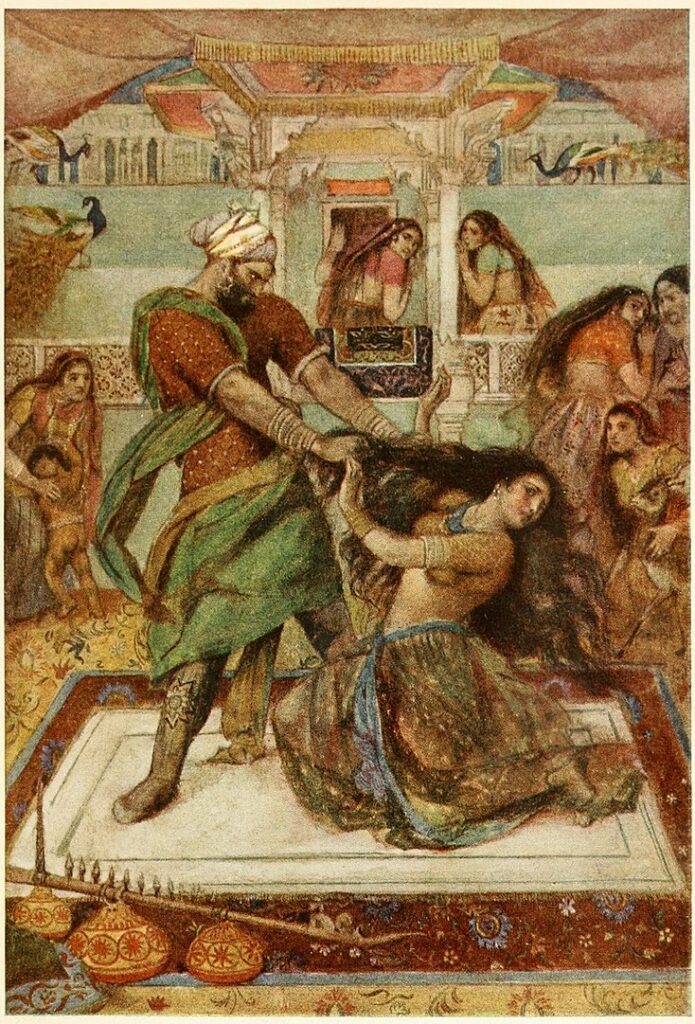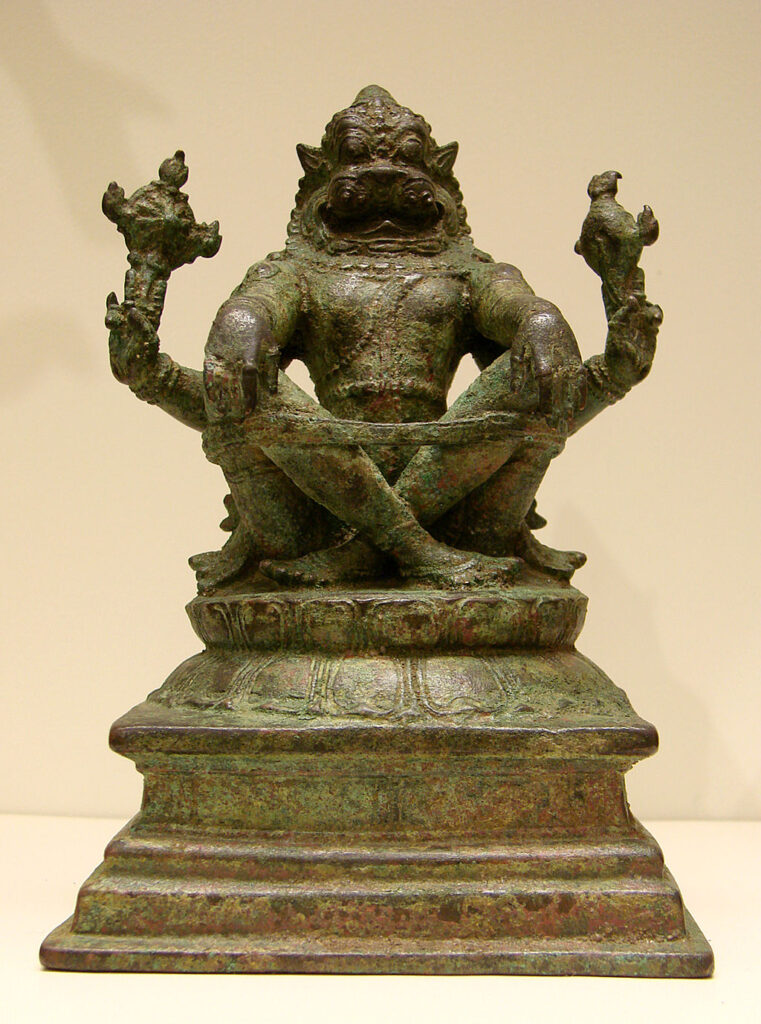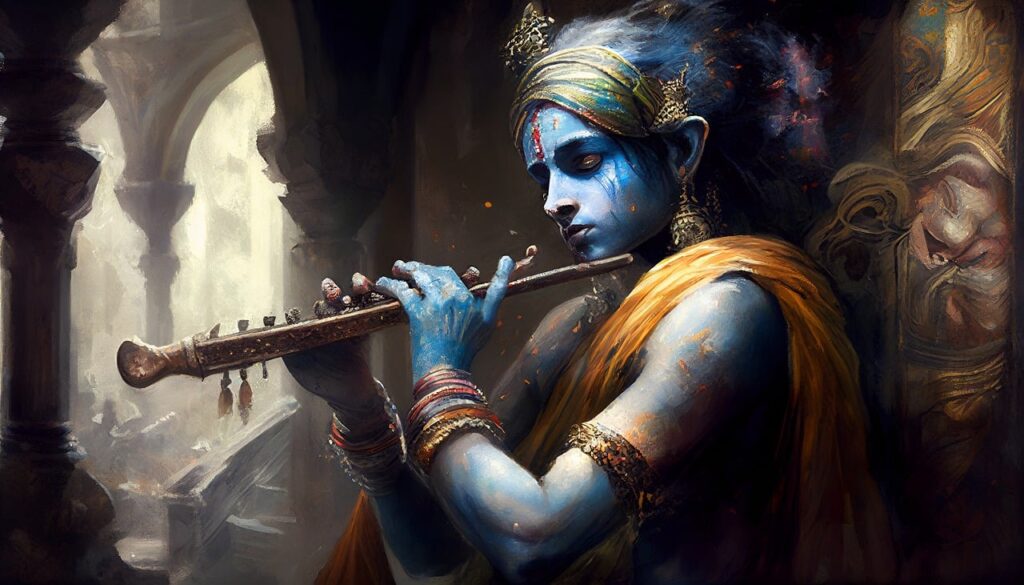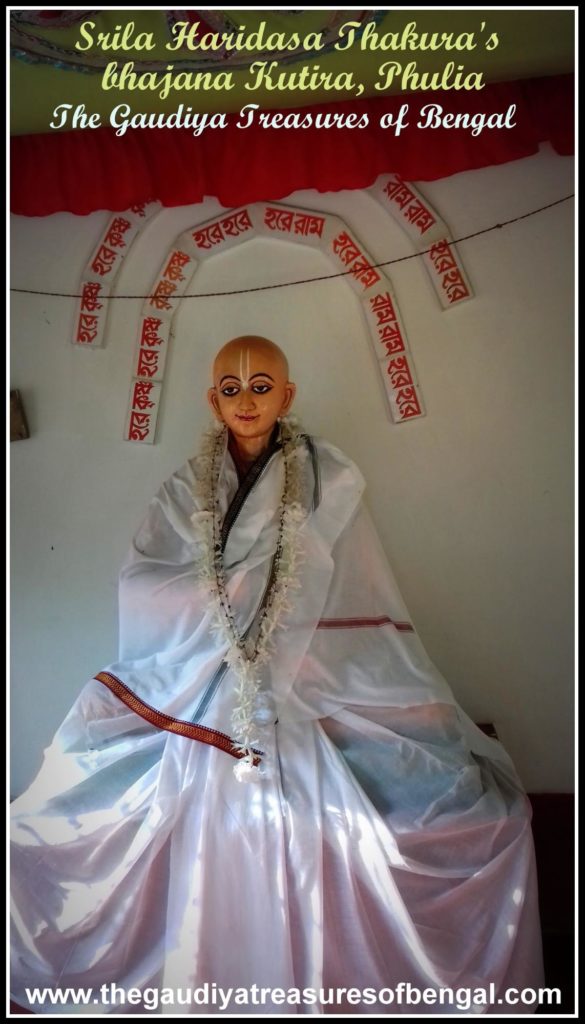
The ancient proverb from Proverbs 3:5 advises us to trust in the Lord with our entire being, rather than relying solely on our own limited understanding. This sentiment is echoed in cultures and religions worldwide, as they encourage individuals to place their faith in a higher power. Even the official motto of the United States, “In God We Trust,” emphasizes the importance of this principle. According to the Bhagavad Gita (5.29), the Lord is the well-wisher and benefactor of all living beings. Wise sages place their trust and faith in him, making him the ultimate purpose of all their endeavors. Despite this universal message, many find it challenging to entrust their faith in others, particularly in a world where selfish motives seem prevalent. It can be challenging to open up and believe in the sincerity of others when the fear of being deceived looms large. Moreover, for those who have yet to experience the comforting influence of God’s presence in their lives, placing their trust in a divine being may seem foreign and uncomfortable.
Nevertheless, it is important to recognize that true trust goes beyond mere human interactions and requires a leap of faith into the unknown. By choosing to trust in a higher power, one can find solace in the knowledge that there is a greater plan at work, and that they are not alone in facing life’s challenges. As the ancient proverb reminds us, trust in the Lord with all your heart, and do not lean on your own understanding. This article will explore the fascinating pastimes of devotees who had committed their lives to serving God, and who had faced tremendous challenges but triumphed with the unwavering strength of their trust in God.
#1 Draupadi Surrenders to God, Entrusting the Protection of Her Honor
The Mahabharata depicts the story of Draupadi, which has become famous for showcasing her immense devotion and surrender to Krishna during a helpless situation. The Pandavas lost their kingdom and Draupadi in a game of dice, leaving her vulnerable to being publicly insulted by Duhshasana. He attempted to disrobe her, which was considered the ultimate disgrace for women in Vedic culture. Draupadi, being weak in comparison to the strong warrior Duhshasan, tried to protect herself and call upon the respected generals and persons in the assembly for help, but to no avail. She called for help from Drona, Bhisma, and other respected persons; they remained silent due to their dependence on Duryodhana.

In her desperate situation, Draupadi remembered Lord Krishna and prayed to him with great devotion. She prayed as follows –
Govinda dvarakavasin Krishna gopi-jana-priya kauravaih paribhutam mam kim na janasi kesava he natha he ramanatha vrajanatharti-nasana kairavarṇava-bhagnam mam uddharasva janardhana Krishna Krishna mahayogin visvatman visva-bhavana prapannam pahi govinda kuru-madhye ‘vasidatim
(Mahabharata: Sabha-parva, 67.82–3)
–
Govinda, the resident of Dwaraka, the beloved of the cowherd women, do you not recognize me, Kesava? O Lord of Lakshmi, O Lord of Rama, O Lord of the residents of Vraja, destroyer of the afflictions of those who take refuge in You, save me from the ocean of danger. O Krishna, O Krishna, the great yogi, the soul of the universe, the sustainer of the universe, protect me, Govinda. I am drowning in the ocean of misery.
When Krishna heard her cries, he immediately appeared and supplied her with unlimited cloth until Duhshasana gave up his attempt to disrobe her. Later, when Draupadi questioned Krishna about his delay in protecting her, he explained that he waited for her to realize the futility of relying on her own strength and to turn to him for help.
This story reminds us that everyone faces difficult situations in life, and it is during such times that we are tested. Relying on our own strength, wealth, or power will not provide us with full help and support. Only by taking full shelter in God through chanting his holy names can we receive complete protection and guidance in overcoming life’s challenges.
#2 Trusting God, Prahlada challenges his demon father
Hiranyakashipu, the brother of Hiranyaksha, was a demon fueled by revenge who wanted to become the Lord of the entire creation by killing Hari, the Supreme Lord who had slain his brother. Lord Brahma granted him the boons that he would not be killed in either the day or night, in either land, air or water, by any man or beast, by any weapon, either inside or outside his residence, thus making him almost immortal. Hiranyakashipu wreaked havoc by conquering all three worlds in this material universe. However, Prahlada, his son, a great devotee of the Supreme Lord, became his enemy by remaining fixed in his determination to serve Lord Hari. Prahlada enunciated the nine processes of devotional service: hearing the Lord’s glories, chanting His holy name, remembering the Lord, serving His lotus feet, offering the Lord respectful worship with sixteen types of paraphernalia, offering Him prayers, becoming His servant, becoming His friend, surrendering unto Him. Hiranyakashipu ordered his servants to kill Prahlada, but no matter how laboriously they tried, they could not kill him. When none of his attempts to kill Prahlada worked, Hiranyakashipu grew very alarmed and enquired as to where Prahlada had received his superhuman powers. Prahlada gently replied that he had received his strength from the same place that his father had received his – from Sri Hari. On hearing his reply, Hiranyakashipu became more enraged and asked Prahlada where his God was. Prahlada answered that God was everywhere. In a fit of rage, the demon then started pointing to different things in the palace and asked his son whether God existed in them. Finally, pointing to a pillar nearby, he asked whether his ‘so-called’ God was present in it. When Prahlada responded in the affirmative, Hiranyakashipu took up his sword and smashed the pillar, as if in an attempt to kill the Supreme Lord. As soon as Hiranyakashipu smashed the pillar, Lord Narasimhadeva appeared from within. The wonderful fearsome form of the Lord, half-lion, half-man, killed Hiranyakashipu during twilight by placing the demon on his lap and uprooting his heart with his divine fingernails. Thus Lord Narasimha killed Hiranyakashipu without dishonoring any of the boons that Brahma had granted the demon.

It may seem like Lord Narasimhadeva’s only purpose in appearing was to kill the demon Hiranyakashipu, but according to Vyasadeva’s Narasimha pranama bhajana, this was not the case. The Supreme Lord had actually manifested Himself to bestow His association, affection, and joy upon Prahlada Maharaj, His beloved devotee. The killing of the demon was just a secondary task. All devotees of the Supreme Lord are also protected by Lord Narasimhadeva, and it is through His blessings that they are empowered to fearlessly confront evil. By placing his trust in God, Prahlada was able to overcome all inhibitions and boldly confront Hiranyakashipu, a fierce demon whose very presence instilled terror in the hearts of demigods.
#3 Vrindavan Residents Find Shelter in Govardhan
As a child, Krishna asked His father Nanda Maharaja about a big sacrifice being prepared by the cowherd men in the village of Vrndavana. Although Krishna knew the sacrifice was for Indra, the Lord of heaven, He asked about it like a curious boy. Nanda thought that Krishna, the all-knowing Personality of Godhead, was just his little boy. Krishna persisted with His questions, and Nanda finally revealed that the sacrifice was for Indra, who controls the clouds that bring rain. However, Krishna suggested they hold a big sacrifice to honor Govardhana Hill instead of Indra, since demigods like Indra are merely servants of God. Nanda eventually agreed, and the cowherd men prepared a feast and offered it to Govardhana Hill. Krishna ordered the cowherd men to worship Govardhana Hill every year.
Upon seeing Lord Krishna stopping the sacrifice meant for him, King Indra was filled with anger and decided to punish the cowherd men for defying the demigods. Indra summoned his most powerful clouds, including the deadly samvartaka, to flood Vrndavana and destroy the village, drowning all the residents and their cows. The dark clouds hurled down streams of rain and chunks of ice, and the wind howled and shrieked, driving the rain like piercing arrows. In this time of complete helplessness, all the residents of Vrndavana came to take refuge at Lord Krishna’s lotus feet, praying for protection from Indra’s wrath.

Krishna, being all-powerful and very kind to His devotees, comforted the residents of Vrndavana, assuring them that they had no shelter but Him and that He would protect them. Krishna picked up Govardhana Hill with one hand and asked the cowherd men to safely take refuge under it. The inhabitants of Vrndavana entered beneath the great hill, feeling no hunger, thirst, or discomfort, and Krishna held up Govardhana Hill for a whole week with the little finger of His left hand.
Upon seeing Krishna’s mystic power, Indra was thunderstruck and baffled. He called off all the clouds and made the strong winds stop, and in a short time, the sky over Vrndavana became completely clear and the sun shone brightly. Krishna asked the cowherd men to return to their homes, and they departed with their cows and families, feeling relieved that the danger was over. Krishna carefully put down Govardhana Hill where it had been before and where it remains to this day. All the inhabitants of Vrndavana came to embrace Krishna in great ecstasy, and the gopis, Mother Yasoda, Nanda, and Krishna’s elder brother Balarama blessed Him over and over again. From the heavens, the demigods beat their drums, played their tambouras, sounded their conch shells, and poured down showers of flowers.
King Indra, having realized his mistake, appeared before Krishna and fell down at His lotus feet, asking for forgiveness. Indra humbly acknowledged that he was Krishna’s eternal servant and that he was puffed up with false pride, having behaved like an ignorant fool. By Lord Krishna’s grace, Indra saw that Krishna was the Supreme Lord and begged for His forgiveness.
This incident demonstrated the residents’ unwavering trust and surrender to Krishna, who they saw as their ultimate protector. They recognized that he alone had the power to save them from any danger, and their faith in him only grew stronger. The residents of Vrindavan had complete trust in Krishna, the Supreme Lord, and surrendered to him at all times. They knew that he was capable of protecting them from any harm that might come their way. When the huge serpent Aghasura appeared, the cowherd boys and Krishna entered its mouth without fear, relying on Krishna’s power to protect them. Similarly, when the devastating forest fire broke out, the cowherd boys and Krishna took shelter under his divine embrace, and Krishna swallowed the fire to save them. These incidents show the unwavering faith that the residents of Vrindavan had in Krishna and their complete surrender to his divine will.
#4 Trusting in God, Haridasa Thakura Endures Whipping at 22 Marketplaces
Srila Haridas Thakur, the namacharya of the Brahma-Madhva-Gaudiya sampradaya, was an empowered incarnation of the Supreme Lord who accompanied Sri Chaitanya Mahaprabhu in His pastimes. He appeared as a combination of Lord Brahma, Prahlada Maharaja, and Richika Muni’s son Mahatapa. Despite being born into a Muslim family, Haridas Thakur widely propagated the chanting of Krishna’s holy name as the ultimate spiritual practice and taught that God is one, though we might call upon Him by different names. Haridas Thakur delivered innumerable souls by bestowing upon them the nectar of the holy name, demonstrating that the holy names of Krishna are non-sectarian and identical to the Lord Himself.
Srila Haridas Thakur, a Muslim by birth, chanted the Hare Krishna Mahamantra with great fervor in Phulia. The local Kazi feared that others would follow Haridas’ example and complained to the Mulukpati. Haridas was summoned and ordered to abandon Harinama, which he refused. Haridas explained that the Supreme Lord is one, regardless of the different names by which we call upon Him. He argued that, in the same way that some Hindus voluntarily take up Islam, he was inspired to chant the holy names of Krishna instead. His explanation satisfied all except the Kazi, who insisted on Haridas’ punishment. The Kazi demanded Haridas be whipped at twenty-two marketplaces and killed. Srila Haridas Thakur was dragged out onto the streets by the royal guards, who whipped him severely. Despite the pain, Haridas Thakur chanted the names of Krishna incessantly and remained unaffected. People who witnessed the punishment felt sympathetic towards him, with some cursing the King and others urging the guards to stop. However, the guards continued to vent their anger and whip him even more. Despite their efforts, Haridas remained unscathed and smiled through the torture. After being whipped at twenty-two marketplaces, the guards realized that Haridas was not an ordinary person and surrendered to him. Feeling compassion towards them, Haridas entered a state of samadhi, where all bodily activities cease to exist. The guards, assuming he was dead, carried his body to the court of Mulukpati, who ordered his burial. However, Kazi objected and suggested that his body be thrown into the Ganges for a better afterlife. The others agreed, and so his body was disposed of in the river.

As Srila Haridas floated down the Ganges, he gradually regained his consciousness. Eventually, he swam to the bank of Phulia. Seeing him alive, the Kazi and the Mulukpati were astonished and realized their error. They recognized Haridas as a spiritually empowered person and begged for his forgiveness. The Mulukpati praised Haridas as a perfected soul and requested his mercy, offering him the freedom to chant any name of God he wished anywhere in the kingdom. Haridas forgave them and bestowed his causeless mercy upon them. He then loudly chanted the holy names of Krishna as he rejoined the assembly of brahmanas, who were overjoyed to see him again.
God always protects those who are devoted to Him. It was only through God’s mercy that Haridas Thakur was able to survive such a brutal beating. Out of his sheer humility, Srila Haridas concluded that he had been rightly punished on that day as he silently tolerated the blasphemy of Krishna, the Supreme lord while being judged at the court. It was only through Krishna’s mercy that Haridas Thakur was able to forgive those who had wronged him and continue his devotion to Krishna.
How to cultivate Trust in God
We can cultivate unwavering trust in God by recognizing his supreme position, as elucidated in the Bhagavad Gita. He is the ultimate controller (09.10) – all outcomes of our actions are dependent on his approval.
upadrastanumanta ca
bharta bhokta mahesvarah
paramatmeti capy ukto
dehe ‘smin purusah parah
(Bhagavad Gita 13.23)
–
However, within this physical body, there exists another entity – a transcendental enjoyer who is none other than the Supreme Lord, the ultimate proprietor of everything. He is the overseer and sanctioner of all our actions and is known as the Supersoul.
Every skill we possess to fulfill our duties is bestowed by him as a gift (07.08). He is the greatest benefactor (05.29). If God can take care of the entire universe both before our birth and after our death, won’t he take care of our small world while we are alive, especially when we are striving to serve him? Absolutely. Once we understand his position and gain conviction in his divine protection, we can completely immerse ourselves in him (10.07). Being absorbed in devotion purifies us and offers us inner clarity to discharge our responsibilities with less anxiety and greater efficiency.
The repeated appeal in Bhagavad gita to fix our minds on the Lord may raise skepticism in our minds. We may question how we can focus solely on God when we have multiple responsibilities to attend to. Our duties as family members, professionals, and citizens demand our attention. However, we need to comprehend responsibility in its entirety. Our roles do not define us; we are immortal souls, fractions of the Almighty. Our primary spiritual obligation is to establish a devotional relationship with the Lord.
As we embark on a spiritual journey towards loving God, we encounter various worldly responsibilities. But they bear significance only when we execute them in a devotional spirit. To nurture that spirit, we must cultivate love for God, which is rooted in meditating on Him. To concentrate on Him, we must have faith that He will take care of our worldly affairs while we divert our attention towards Him, even if it is for a brief moment.